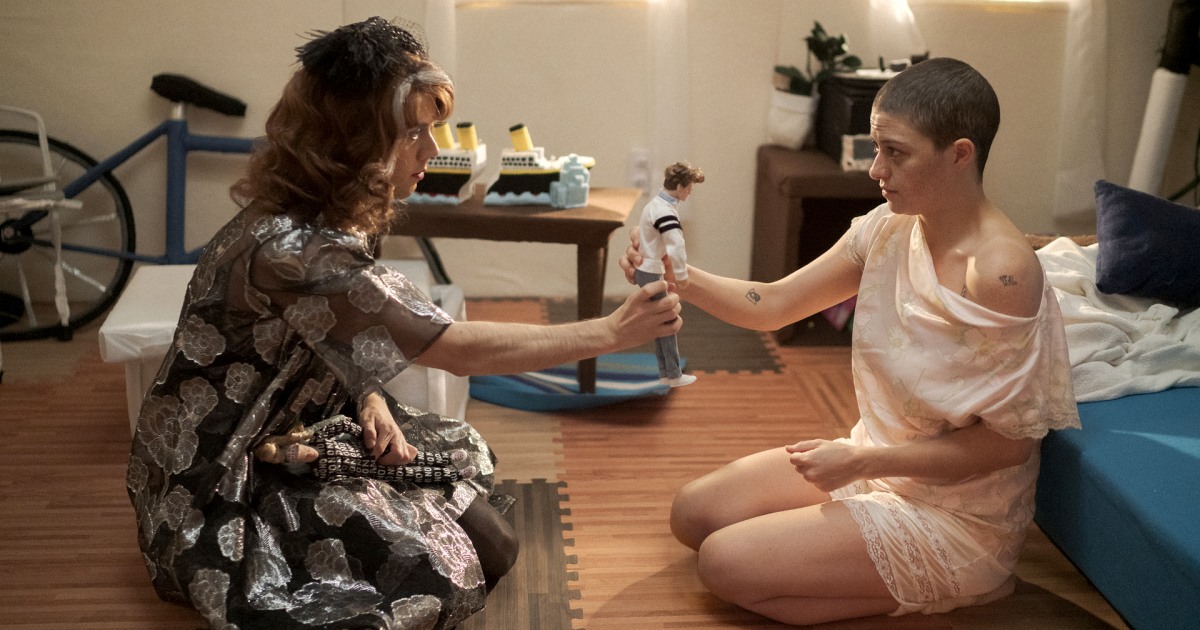
When the mystery show “Search Party” first aired in 2016 on TBS, it was a lighter take on a group of New York late millennials attempting to find a college friend from a missing flyer. It eventually moved to HBO Max after the streaming service’s creation last year — and the plotlines increased in intensity with each episode but decreased in critical ratings. “Search Party” has since morphed into psychological thriller territory that explores themes of murder, grief and trauma in its new — and most unhinged — fourth season
The show spent most of the third season focused on the murder trial of main character Dory Sief (Alia Shawkat) and her boyfriend Drew (John Paul Reynolds), who were ultimately acquitted of killing a private investigator despite not being innocent.
Show creators Sarah-Violet Bliss and Charles Rogers said they used real-life cases like that of Amanda Knox as courtroom inspiration; Knox and her one-time boyfriend were ultimately acquitted of the murder of her roommate by Italian courts and she maintains her innocence. Season 4 then finds Dory trapped in a basement by an obsessed stalker named Chip (Cole Escola), as her self-focused friends move on with their lives and fail to notice her absence.
“Search Party” thus remains relentless in its desire to deny its characters complete or happy endings. During the first few episodes, the show still manages to do what it does best, by offering an accurate portrayal — and partial critique — of the varying ways of life within a group of 20-somethings.
The show’s writers offer millennial characters who are recognizable, endearing and aggravating, sometimes at the same time, sometimes in a single scene.
Sure, the humor is a lot subtler than it used to be when it aired on TBS, but it’s not lost entirely. Drew works as a character at a theme park — a veritable humor mine. Portia (Meredith Hagner) is the bubbly aspiring actress of the group, who gets cast (and eventually fired) as Dory in a true-crime re-enactment film. And Elliott (John Early) decides to cultivate a cutthroat image as a conservative television host alongside newcomer Charlie Reeny (“Saturday Night Live’s” Chloe Fineman).
And the show doesn’t hit viewers over the head with the inevitable, exhausting “all millennials are bad” trope — which is quite an old canard, as millennials themselves are turning 40 this year — but instead welcomes both young millennials and those of Gen Z to watch the journeys of the show’s complex characters without obviously Gen X or boomer foils meant to show them (or us) how they’re supposed to act. Instead, the writers offer millennial characters who are recognizable, endearing and aggravating, sometimes at the same time, sometimes in a single scene — just like any human in real life.
Given that Dory spends time being held captive by Chip — a lonely obsessive with a violent streak whose wealthy relatives trail behind to clean up the destruction and dead bodies — she goes through the most changes of anyone on the show in this season. But then, Dory has already been several different versions of herself in the last three seasons, from her well-intentioned busybody at the series’ start to the manipulative person on trial for murder last season. As her state of mind worsens, trapped and alone, we see her struggle with who she was and who she’s become — an overly dramatic version of what any young person might go through at that age.
Escola provides a knockout performance as Chip, and the show asks viewers to contemplate whether he and Dory actually have very similar personalities in terms of both their extreme denial about their actions and, perhaps, their affinity for wearing wigs in public.
For a show that started as a “Nancy Drew” like romp and ended up, within three seasons, with its main character acquitted of a murder they actually committed, the fourth takes an even darker turn, touching on Stockholm Syndrome, how money can better insulate the wealthy from the consequences of their actions, if any of us are real or just playing versions of ourselves, and even whether we can ever escape our own demons.
It’s currently unclear whether “Search Party” will be renewed for a fifth season and in which direction it will move if it does; as with previous seasons, this one ends with a cliffhanger. But what is positioned as a season-ending cliffhanger could just as easily be a series end in and of itself. However, with such standout performances, plenty of threads to pick up for the next season and an infinite number of dramatic genres to explore, if the show can continue to recapture the qualities that made fans fall in love with it, it could stick around for a long time.
Source: | This article originally belongs to Nbcnews.com










